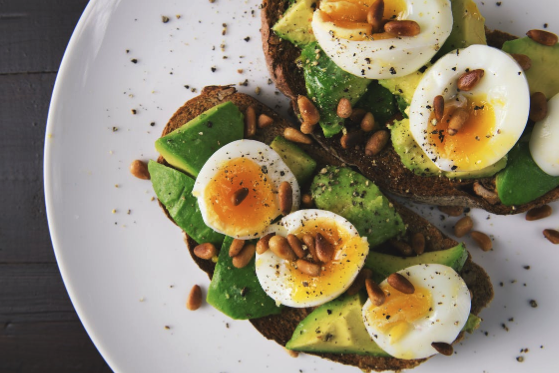Meat is a great protein source. However, doctors caution against excessive red meat consumption, which could endanger your life. Red meat contains a lot of saturated fats absorbed into your body, thus leading to serious health issues. If you eat red meat regularly, especially beef, you have high chances of developing heart disease, type 2 diabetes, or stroke.
If you love meat, you should substitute beef with healthy protein alternatives. Below are some healthy options to beef that you can incorporate into your diet.
Table of Contents
Jerky
Jerky is a great snack to eat in between meals. Many people prefer jerky because it has a low saturated fat content. It also has plenty of proteins, vitamins, and minerals.
And apart from the popular beef jerky, there are many other varieties. These include Buffalo jerky, turkey jerky, bacon jerky, and chicken jerky.
Plant-Based Proteins
Plant-based proteins are a great alternative if you want to reduce your beef consumption. Popular plant-based protein sources include beans, lentils, and quinoa.
Vegetarian proteins offer you plenty of nutrients and essential amino acids. And it is also low in fat and calories. If you’re looking for creative ways to enjoy plant-based proteins, try the following.
- Mushroom
Mushrooms are another great source of healthy protein. They have loads of health benefits, including improved immunity and anti-inflammatory effect. They have a savory taste that goes well with many recipes, including pizza.
You can sauté mushrooms with garlic and herbs and serve them as a side dish. Give shiitake mushrooms a try, as they are packed with twice as much protein as other varieties.
- Grains
Whole grains like brown rice, quinoa, oats, and buckwheat are excellent sources of plant-based proteins.
They can be incorporated into many dishes, including breakfast porridge, lunch salads, or dinner risottos. Besides, they are loaded with dietary fiber, which helps keep you full throughout the day.
- Legumes
Beans, chickpeas, lentils, and peas are good sources of vegetarian proteins. They provide a healthy dose of dietary fiber, vitamins, and minerals.
You can replace ground beef with legumes. The best part is they make yummy soups and stews.
- Jackfruit
Jackfruit contains a healthy dose of vitamins and minerals. While it isn’t a true replacement for culinary meat, Jackfruit can be used in sandwiches and culinary terms; it is called pulled pork. And it provides creatively prepared vegan meals.
You’ll most likely find it at the supermarket in the Asian section. It can be marinated, baked, boiled, or grilled for your sandwiches.
- Tofu
A staple food among vegetarians for decades is tofu. It’s versatile, meaning it can be incorporated in many recipes. You can scramble for breakfast, crumble into tacos for lunch, or pan-fry as a main course at dinner.
Plus, there are so many types of tofu, ensuring everyone’s taste buds are catered to. And since they are made from soy, you can also include soy milk in your diet, thus an ideal way to cut back on dairy.
- Seitan
It is called “wheat meat” as it has a chewy texture, similar to cooked beef. Seitan combines wheat gluten flour with spices and seasonings and baking until golden brown.
This vegan-friendly option provides more complete proteins than salmon’s omega-3 fatty acids. Enjoy seitan marinated in your favorite sauce over top noodles or diced into cubes, then add it to soups and stews.
- Tempeh
This fermented soybean product has been embraced by vegans everywhere thanks to its high nutrient content and hearty flavor. Tempeh contains around 15g of protein per 100 grams serving, slightly more than found inside eggs.
You can use it to replace ground beef chili beans, dips, and burger wraps. Start simple by marinating and steaming it before tossing it onto a plate to serve alongside the salad.
Bison
It is an excellent alternative to beef as its super low cholesterol content and fat. And compared to beef, it has a mild flavor. A 3-ounce cooked Bison contains approximately 9 grams of fat and 122 calories.
It’s best cooked as grilled steak and served with tacos, chili, and burgers.
Venison
It’s another great alternative to beef that is low in fat, iron, and minerals, such as selenium, an excellent antioxidant.
Venison is preferred by many because it has a rich and distinct flavor. It can be grilled, prepared as a jerky, or served or incorporated in chili and fajitas.
Fish
Fish is an excellent alternative to beef. And it offers many vital oils, essential vitamins, and antioxidants that help maintain optimal body functions. It also helps boost your immune system, enhance brain development and cardiovascular performance.
The good thing about fish is that there are many options. These include salmon, bass, trout, prawns, and sardines.
Chicken Breast
This classic meat source offers one of the leanest cuts of protein available. Each cooked 3-ounce portion contains around 24 gms of proteins. You can roast or pan-fry. And the best part is you can incorporate chicken breast in many meals, such as salad.
Emu Meat
Another alternative source of protein you can explore is emu meat. This lean and flavorful meat provides a unique option for those seeking variety in their protein sources. If you are wondering whether the emu meat taste would be similar to other poultry meats like chicken, you’ll find that while it shares some similarities, it has its own distinct flavor profile. Emu meat is often described as having a slightly richer and slightly gamey taste compared to chicken, with a tender yet firm texture. Whether grilled, roasted, or incorporated into stews and stir-fries, emu meat can add a delicious twist to your meals while providing the protein your body needs.
Nuts
Nuts are a great source of healthy fats, fiber, minerals, and vitamins. They help support and enhance your overall well-being. Walnuts and pecans have high protein content. Other nuts to include in your meals or as snacks include cashews, peanuts, macadamia, and Brazilian nuts.
You can integrate nuts into various recipes, such as desserts, trail mixes, smoothies, and salads.
Eggs
Eggs are an excellent vegetarian protein source and provide about 6g of complete protein per serving. They are also a good iron, potassium, and Vitamin A source. This makes them a superb choice for those looking to get more nutrients. Eggs can be boiled, scrambled, poached, deviled, and even as an omelet.
Final Thoughts
Are you looking to reduce your red meat consumption but still want to ensure you get enough quality protein? This article has given you some ideas on how to do so without sacrificing flavor–from plant-based proteins such as beans and seitan to mushrooms. Don’t forget other sources of nutrition such as grains, tofu, tempeh, legumes, Jackfruit, tenderloin pork jerky, and nuts.





